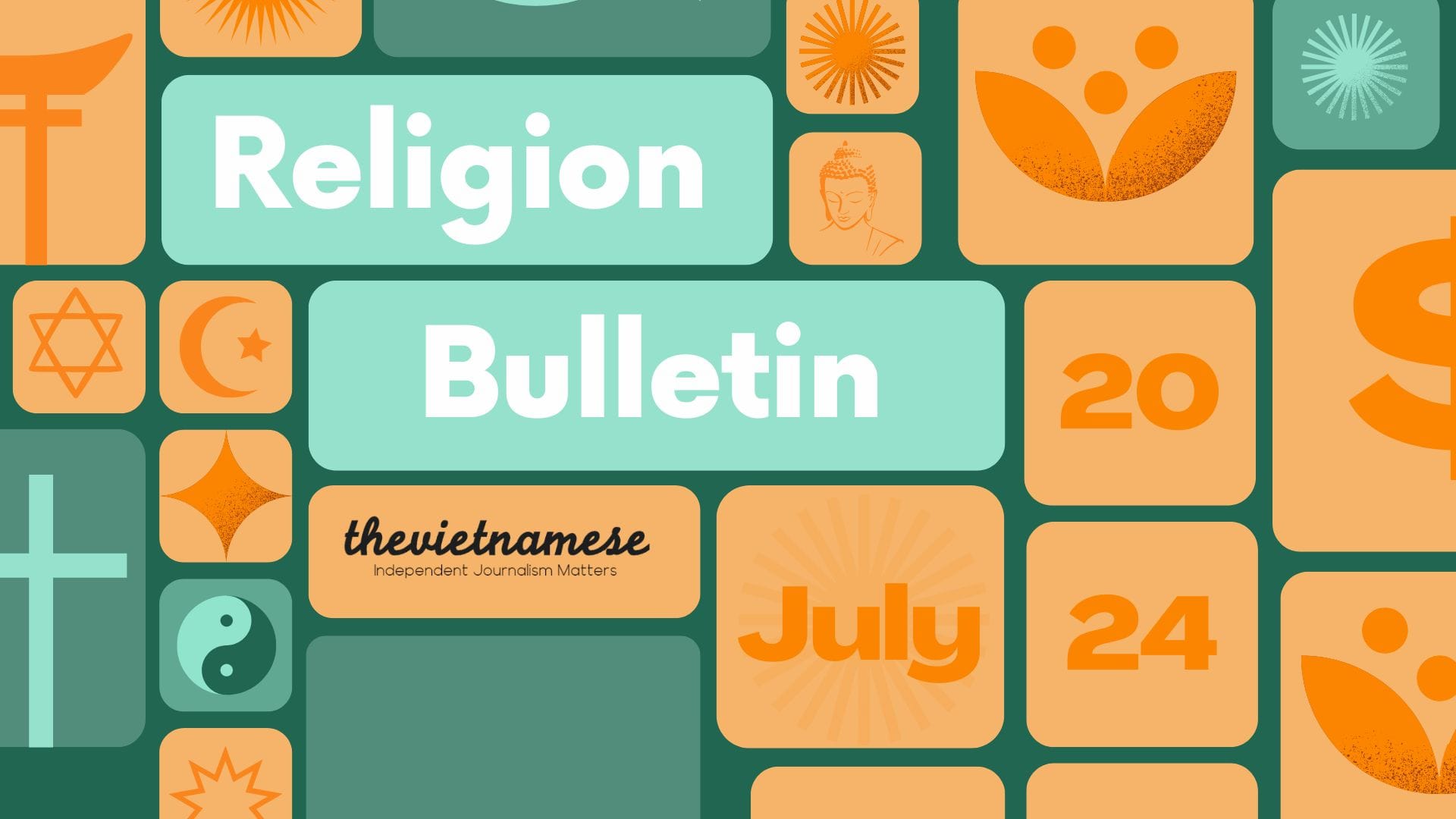The July 2024 religious freedom report includes several notable updates: The US reported that 11 Christians in Vietnam have been imprisoned, and their whereabouts remain unknown. In addition, four provinces in northern Vietnam are working hard to shut down several religious groups in their areas.
Delay in Issuing Decree on Fines for Religious Violations
According to Lao Động newspaper, the Ministry of Home Affairs has reported to the government that it wants to delay the issuance of a decree on administrative fines related to belief and religion until 2025. The reason: many people believe that punishing religious leaders, clergy, and monks could negatively affect the government’s overall religious policy and cause public concern. So, more time is needed to complete the draft.
Although the Law on Belief and Religion was passed in 2016 and Decree No. 95 which guides the law is already in effect, this specific decree on administrative fines for religious violations is still being debated.
Earlier, in January 2024, the Ministry of Home Affairs announced that the regulation had not yet been approved due to concerns it could cause negative reactions in society.
The Nhân Quả Religion is Accused of “Disguising Itself as a Religion”
On July 31, the author of an article in the Công Thương newspaper stated that the Nhân Quả religion is an organization disguising itself as a religion and operating illegally.
The Nhân Quả religion appeared a few years ago in some central provinces of Vietnam. It promotes love for everyone, regardless of religion, and aims to bring harmony between Christianity and Buddhism.
According to the article, followers of this religion practice according to the Khất Sĩ tradition but wear robes similar to monks in the Vietnam Buddhist Sangha. They also have no fixed place of worship and only operate online.
The Khất Sĩ tradition (literally “Mendicant”) is a Vietnamese Buddhist monastic order founded in the 1940s by Venerable Thích Minh Đăng Quang, who sought to unify elements of Theravāda and Mahayāna Buddhism. The name “Khất Sĩ” means “begging for food,” reflecting the order’s emphasis on monastic simplicity, alms rounds, and strict adherence to the Vinaya (monastic code).
Like other unrecognized religions in Vietnam, the authorities have tried to stop the activities of Nhân Quả followers. Most recently, officials in Hà Tĩnh Province prevented their activities and confiscated hundreds of books spreading the religion’s message.
Lai Châu: No More Followers of Bà Cô Dợ, Giê Sùa, and Ân Điển Cứu Rỗi
According to Xây Dựng Đảng (Building the Communist Party) magazine, as of the end of July, there are no more followers of the Bà Cô Dợ, Giê Sùa, or the Ân Điển Cứu Rỗi religions in Lai Châu Province. Previously, the province had a total of 1,296 followers, which included 763 of Ân điển cứu rỗi, 395 of Bà Cô Dợ, and 138 of Giê Sùa.
These lesser-known belief systems have emerged at the margins of official recognition. Together, they highlight the resilience and adaptability of faith in Vietnam under cultural and political pressures.
These religions were accused by local authorities of being heretical, superstitious, and false, as well as misusing state-recognized religious teachings, spreading false messages, persuading people to form separate states, violating the law, and disrupting national unity policies.
Yên Bái: Giê Sùa religion eliminated
According to Lao Động newspaper, Yên Bái Province has successfully eliminated the Giê Sùa religion. Currently, no followers of this practice are left in the province.
Back in 2021, authorities in Yên Bái found 40 H’Mông people in Văn Chấn and Trạm Tấu districts practicing the Giê Sùa religion online. After a period of persuasion and government messaging, these followers signed pledges to give up their religion.
Giê Sùa is one of the most heavily suppressed religions in northern Vietnam. The state says the religion has political and anti-government elements. In addition, the Hội thánh Đức Chúa Trời, another religious sect, is also active in the province, and so is being prevented from holding gatherings.
Thái Nguyên: Ân Điển Cứu Rỗi Eliminated
In early July, authorities in Thái Nguyên Province announced that the Ân điển cứu rỗi has been completely eliminated in the province. Previously, there were 48 followers of this religion, but all of them have now signed pledges to renounce it.
Local officials have labeled the Ân Điển Cứu Rỗi a heretical religion that causes divisions among recognized Protestant denominations.
This religion is also known asEternal Grace or Eternal Salvation. It is a relatively new Christian sect, based in South Korea, and was founded by Pastor Ock Soo Park in 1971.
Lào Cai: Complete Elimination of Bà Cô Dợ and Dương Văn Mình Religions
On July 12, authorities in Lào Cai Province announced that there are no longer any followers of the Bà Cô Dợ and Dương Văn Mình religions in the area.
Up until now, the government has consistently accused both groups of using religious beliefs to grow their movements, spreading messages that divide national unity, promoting separatist ideas, and calling for the creation of an independent state.
ICC: 11 Christian Prisoners in Vietnam Missing
On July 5, the US organization International Christian Concern (ICC) reported that 11 Christians in Vietnam have been imprisoned, including six Protestants and five Catholics. These believers were prosecuted and sentenced between 2011 and 2016, receiving a combined sentence of more than 90 years in prison.
According to ICC, all 11 individuals are from the Degar ethnic group, also known as Montagnards, who live in Vietnam’s Central Highlands. Their current location remains unknown.
In June, the US State Department released its 2023 International Religious Freedom Report on Vietnam. The report states that Vietnam has threatened and harassed believers from minority religious groups, especially in the Central Highlands and the northwest.
At the end of 2022, US Secretary of State Antony J. Blinken placed Vietnam on the Special Watch List (SWL) for religious freedom concerns.

